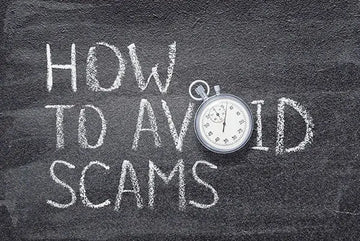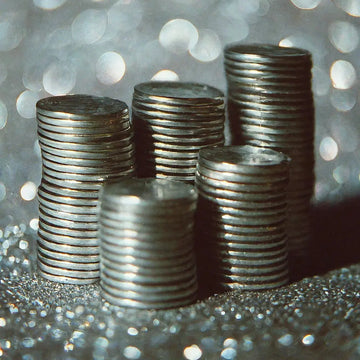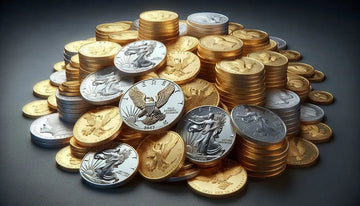Buying coins and bullion can be an exciting and profitable endeavor. However, it's crucial to be aware of potential scams and fraudulent practices that can jeopardize your investment. Whether you're a beginner or an experienced buyer, understanding how to avoid scams is essential. In this comprehensive guide, we'll provide you with vital tips and best practices to protect yourself when purchasing coins and bullion. By arming yourself with knowledge and staying vigilant, you can confidently navigate the market and safeguard your investments.
Research and Education:
- Know the Market: Familiarize yourself with the current market conditions, including prices, trends, and reputable dealers. Stay updated with industry news and developments to make informed decisions.
- Learn About Authenticity: Understand the characteristics, markings, and security features of genuine coins and bullion to differentiate them from counterfeits. Research reputable grading services and authentication methods to verify the authenticity of your purchases.
Choose Reputable Sellers:
- Research Seller Reputation: Before making a purchase, thoroughly research the seller's reputation. Look for reviews, ratings, and testimonials from trusted sources. Verify the seller's credentials, such as certifications, memberships in industry associations, or positive feedback from other buyers.
- Verify Seller's Credentials: Check if the seller has a physical address, a phone number, and a professional website. Avoid dealing with sellers who only operate through anonymous online platforms or refuse to provide essential contact information.
- Seek Recommendations: Ask for recommendations from trusted coin collectors, bullion investors, or local coin clubs to find reputable sellers with a proven track record.
Secure Payment Methods:
- Use Secure Payment Platforms: When purchasing coins or bullion online, use secure payment platforms that offer buyer protection, such as PayPal or credit cards. Avoid wire transfers or payments made through non-secure methods, as they offer limited recourse in case of fraud.
- Be Wary of Cash Transactions: While cash transactions can be convenient, they offer limited protection and leave no paper trail. Exercise caution when engaging in cash deals and consider alternative payment methods that offer more security.
Scrutinize Product Information:
- Verify Product Details: Thoroughly examine product descriptions, images, and specifications provided by the seller. Look for inconsistencies or vague information that could indicate potential scams.
- Request Additional Documentation: Ask the seller for relevant documentation, such as certificates of authenticity, grading reports, or proof of origin for numismatic coins. Genuine sellers will be transparent and willing to provide the necessary documentation.
Avoid Unrealistic Deals:
- Too Good to Be True Prices: Exercise caution when encountering prices significantly below the prevailing market rates. If a deal seems too good to be true, it's likely a red flag for potential fraud or counterfeit products.
- Avoid Pressure Tactics: Scammers may use high-pressure sales tactics, limited-time offers, or claims of scarcity to create a sense of urgency. Take your time, do your research, and make informed decisions based on your own analysis.
Trust Your Instincts:
- Listen to Your Gut: If something feels off or suspicious about a seller or transaction, trust your instincts and proceed with caution or walk away altogether. Your intuition can be a valuable tool in avoiding scams.
- Seek Professional Advice: When in doubt, consult with reputable coin dealers, bullion experts, or experienced collectors. They can provide guidance, answer your questions, and offer valuable information.





